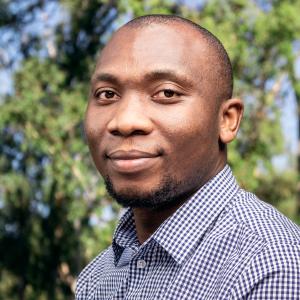The Media Career Development Network (MCDN), a nonprofit media organization in Nigeria, is providing free training sessions, coaching and mentoring to journalists across the country.
Established in 2003, the organization is made up of experienced journalists with local and international networks. To meet the career development needs of journalists, MCDN organizes lectures, short training programs, seminars, conferences and awards.
“The organization is concerned with providing resources to meet the challenges of media careers through regular training for all categories of journalists and other media professionals,” says Lekan Otufodunrin, the executive director of the organization.
Otufodunrin, a media career development expert with over 30 years experience, has worked with different newsrooms in Nigeria. Until December 2018, he was the managing editor for Online and Special Publications of The Nation Newspapers — one of the most widely read newspapers in Nigeria. He has also written numerous books on the subject and received fellowships from international media organizations.
Otufodunrin says most media houses in Nigeria do not have structured orientation and mentoring programs, so his organization works to fill this gap. Otufodunrin says journalists can either come physically or sign up through MCDN’s website. Additionally, the organization runs Q&A’s about media careers on Facebook and Twitter, which are then uploaded on their website for people to view.
“We provide newsroom training and master classes for media training schools. We work with NGOs to mentor journalists on various stories and project assignments,” Otufodunrin says.
In collaboration with other media NGOs, MCDN’s media career training sessions for young and mid-career journalists across the country focus on various aspects of the profession, including workplace skills, leadership, new media and specific areas that are requested.
“The trainings have really exposed me to modern journalism practice,” Shehu Olayinka, a reporter with The Nation, says. “I learned about IJNet and the Thomson Reuters Foundation from attending the training sessions.”
“The media development scene is far behind in Nigeria compared to what you have in Western countries, especially in the U.S. and Brazil. They are more exposed and advanced than us,” Olayinka adds.
Most importantly, the MCDN works to reach diverse journalists by providing training opportunities to students, young journalists and even non-journalists who want media training.
“The training was impactful and well facilitated,” says Yinka Fadare from the News Agency of Nigeria who attended one of the sessions. “It motivated me to go further to learn more digital skills that has helped my profession. It was interactive and we had the opportunity to ask questions.”
The sessions are almost always free, and even when the sessions are not free, they are highly subsidized.
Like every nonprofit media organization, MCDN is facing funding challenges. Also, journalists who receive the trainings, according to Otufodunrin, are not as committed as they should be to the efforts to help them get better on the job.
Presently without funders, MCDN reaches out to media organizations to support their reporters’ career development by sponsoring them for the trainings. To an extent, this has been successful.
“Media houses are not as accommodating as they should for our kind support,” says Otufodunrin. “[However] we are registered with some granting bodies and we are hopeful to access grants soon.”
MCDN is currently creating a membership model, which they have already tested. Members provide information on themselves, including their work, and the MCDN team guides them with a monthly report that includes advice and opportunities to progress in their various beats
Apart from the regular training sessions, MCDN also holds an annual conference for young journalists. The two-day event, held in Lagos, is aimed at improving the quality of journalism practice among young journalists in the country, and giving advice to young people interested in the field but with little knowledge of how to get started.
In 2005, MCDN also initiated the “Young Journalist Awards,” an annual award ceremony to recognize and encourage the excellent work of young journalists in Nigeria. Past winners have gone on to win international journalism prizes and become leaders in newsrooms both within and outside of Nigeria.
For instance, Toyosi Ogunseye, who was the 2007 winner of the award, is now the head of West Africa Languages at the BBC and currently sits on the board of the World Editors Forum.
Despite challenges, Otufodunrin says he is not backing down. The steady positive impact the organization is making in the lives and career of journalists across the country and beyond keeps him going.
“I have a personal commitment to make regular mentoring and coaching a key feature of media careers in Nigeria,” he says. “That is the reason I have decided to face the task full time.”
Main image CC-licensed by Unsplash via NESA by Makers.


